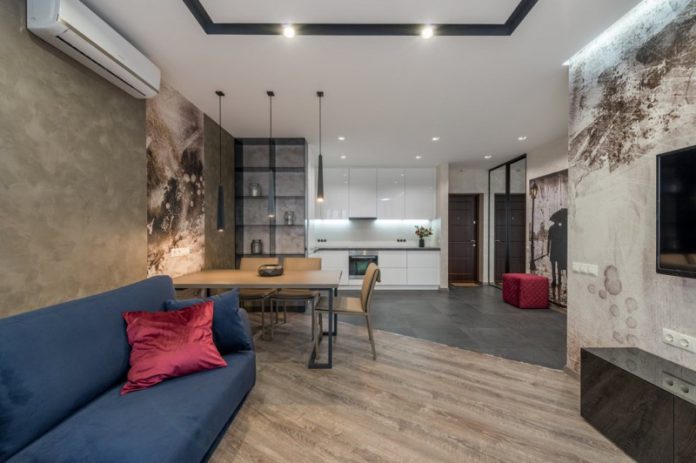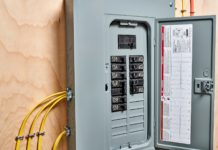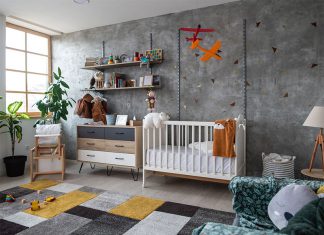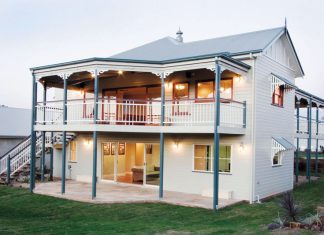Having air conditioning in your home is important in the summer, as it helps keep you and your family cool and comfortable in hot weather.
Air conditioners are designed to lower the temperature in your home while simultaneously removing excess moisture, with this in mind, you may be wondering what exactly an air conditioner is and how it works?
So with an aim to help you out, here is everything you need to know about air conditioners and its different types.
So without further ado, let’s start with what is it?
What is an Air-Conditioner?
An air conditioner also known as AC is a machine that removes heat and moisture from indoor or an enclosed space. It typically consists of a thermally powered refrigeration system, together with a means of removing water vapor from the cooled air.
Who invented the Air-Conditioner?
An American engineer by the name of Wills Carrier designed what we now know as air conditioning in 1902. Carrier was born on November 26th, 1876 and died on October 7th, 1950.
How does an air conditioner work?
Air conditioners work by using a refrigeration cycle, which is composed of four stages: evaporation, condensation, compression and expansion. The refrigerant gas changes from liquid to vapor in the evaporator coil due to low pressure.
The heat of the room air vaporizes the liquid refrigerant in this coil, cooling it down and causing it to lose its ability to hold water molecules. These molecules move into the room in the form of a fine mist.
Watch this video to better understand how an air conditioner works.
Types of Air-Conditioner
To say that there are many air conditioners in the market, but according to some reliable sources there are mainly four types of air conditioners.
- Window Air Conditioners
- Inverter Split Air Conditioners
- Portable Air Conditioners
- Split Air Conditioners
Now let’s take a look at these different types of air conditioners as well as some pros and cons associated with each one.
Window Air Conditioners:
As its name suggests window Ac units are designed to install on windows, these types of air conditioners are a good option if you want to cool just one or two rooms, but they might not be the best option for large homes with many windowsills.
Window ACs are very affordable and work well for cooling small rooms quickly. They can also be moved from room to room as needed, but for that you have to do the opposite of what you did to install it.
There are many factors to consider when choosing a window AC unit, but most importantly, be sure to go with a quietest window air conditioner unit because window ACs are usually noisy.
Well put these things to the side and let’s look at some of the pros and cons of window units.
Pros
- Excellent choice for rooms less than 300 square feet.
- Window units are generally less expensive than other types.
- They are super easier to set up.
- These units are energy efficient when compared to portable air conditioners.
Cons
- These types of units are usually slightly noisy.
- Some units differ from our window size.
Inverter Split Air Conditioners:
Inverter split air-conditioning units are one of the best options available for those who wish to purchase a highly efficient air conditioning unit.
They have low energy consumption, which makes them a great option for saving money on your electricity bill. In addition to being efficient, they also offer versatile cooling options, so you can control the temperature in any room.
Also, these types of units are the quietest AC units and come with a wide variety of modes and settings, but since they come with such a feature, they are expensive. Let’s look at some of its strengths and weaknesses.
Pros
- It can operate on solar panels.
- Highly energy-efficient.
- Perfect choice for large rooms even for outdoor.
- Operates at super low noise.
Cons
- Extremely expensive.
- Installing it can be difficult.
- Repairs and maintenance cost a lot.
Portable Air-Conditioners:
A portable air conditioner can be a great option for someone who lives in a rental apartment or is on an extremely tight budget, as they do not require permanent installation and it’s way cheaper than other types of air conditioners. Their installation is quite simple and easy.
They are good to install in a small sized room as they can not provide enough cooling to a large room and consume a lot of energy so they are not efficient at all.
Apart from these drawbacks, they are also much noisier than all its variants. Also, they require more maintenance, but their maintenance cost is a bit cheaper than other variants.
Pros
- They don’t cost much
- Super easy to install
- Ideal for renters
Cons
- Not energy efficient
- It requires regular maintenance
- Make too much noise
Split AC unit:
Split AC units are the most common type of air conditioning system in North America. This type of AC unit usually comes in two separate parts, one part is installed in your room and the other part is set up outside your house by wall, so their installation can be complicated.
Split AC units have a more efficient cooling capacity than window and portable units. These types of units are expensive but not as much as inverter split units. Unlike inverter split AC units, it does not require much maintenance but is expensive to maintain and repair.
Pros
- It has remarkably low noise
- Significantly efficient
- Ideal for cooling large rooms
- Comes with Smart Control
Cons
- Can be tough to set up
- These units often carry a high price tag.
- During any repair and maintenance, its cost is high.
5 Factors to Consider Before Buying an Air Conditioner
Air conditioning can make all the difference in your comfort levels and productivity, but it’s not as simple as just walking into the store and picking one up.
Whether you’re purchasing an air conditioner for your home or an office, there are many factors to consider.
Here are five factors to consider before buying an air conditioner so that you can be sure you’re getting the right unit for your needs.
#1. Choose a unit capacity based on your room size
Selecting a unit that is capable of providing adequate cooling to your room is of utmost importance. The efficiency of an air conditioner depends on its BTUs.
Air conditioners are classified by BTU, which is a measure of heat output. The higher the BTUs, the more expensive the unit and the faster it will cool your home.
You’ll want to think about how much space you need to cool. For example, if your room size is 200 square feet, you should go with a 6,000 BTU unit.
And if you’re trying to cool a 500-square-foot room with a 5,000 BTU unit, it will probably take longer and your unit may be noisier during that time.
Most air conditioners have a unit size range of 5,000–10,000 BTUs. It’s based on the square footage of the room it’s going to be in.
#2. Noise level
Noise level is a factor that many people do not take into account when shopping for an air conditioner and this puts them at a disadvantage.
You want to make sure you buy one that has the lowest noise level possible. The higher the sound levels, the more likely your next door neighbors will be annoyed by it.
Usually the cheapest option in the market is a portable unit that makes a lot more noise than an inverter AC, this is bad news, and the good news is that window air conditioners fall into the category of quieter units, but they are not as quiet as an inverse unit.
So if noise level is your major concern then you should not go with a portable ac unit, you can go with window, split or inverter system ac.
Well, the noise level of the unit below 60dB generally falls in the category of a quiet unit, must check this while purchasing an ac unit.
#3. Energy Efficiency
Energy efficiency refers to the ability of the air conditioner to cool your home without using a lot of energy. In other words, energy efficient air conditioners will use less electricity while still providing you with the same comfort level as a less-efficient model.
Energy efficiency is expressed in EER, which stands for energy efficiency rating, and typically air conditioners with an EER above 12 are counted as efficient units.
But in some units they are not mentioned, in this case I suggest you check the energy efficiency rating rated by buyers like you and me in the By feature section , it should be above four.
Here is an example taken from Amazon-
#4. Good Consumer ratings and reviews
Checking the consumer ratings and reviews is important as it lets you know how good a unit is, and it even tells you about the strengths and weaknesses of that unit.
Consumer is someone who is buying the unit for their own use like you and me, and when they buy something, they use it and since it costs nothing to leave a review on, they happily leave it and mention its pros and cons.
But not all consumers do so, according to SellerCentral Amazon only 10 to 20% of buyers leave feedback.
Bottom line: Be sure to read reviews of any expensive item as well as the low cost item before you buy it as this will give you an idea of what the product is really good or not.
#5. The Budget
It sounds like a waste, but believe me, it is super important to buy an air conditioner in your budget. You need to know how much money you can afford for the unit.
Conclusion
Air conditioner is a great way to cool down in summer. There are four different types of air conditioners, but they all differ in price, features, and even noise level.
If you are looking for an affordable yet best air conditioner that fits your budget and is not noisy, then you should probably consider buying a window air conditioner, this is just my personal opinion, but it is totally in your hands.
Author Bio
Mr. Ashish blog at soundproofaddict.com, he have more than 3 years of experience in soundproofing, also helped a lot of people soundproof their bedrooms, studios, cars and other areas where they find noise to be distracting or uncomfortable.
















